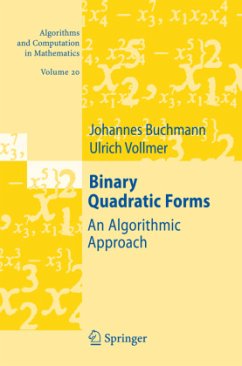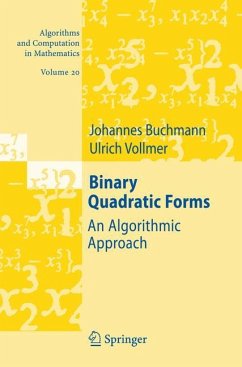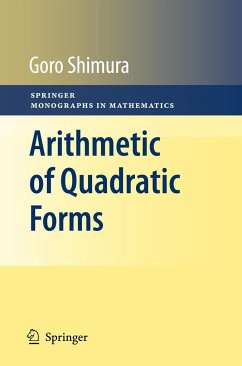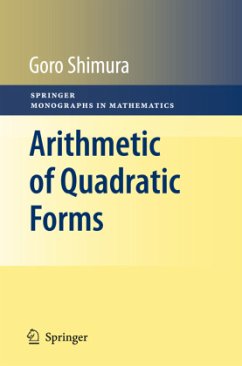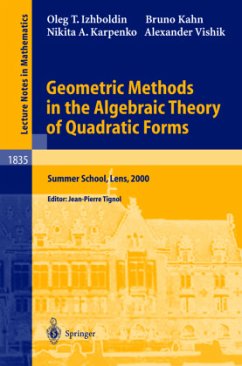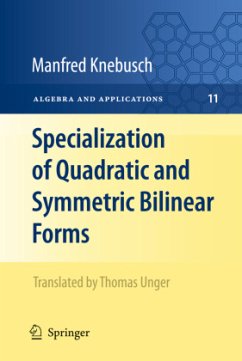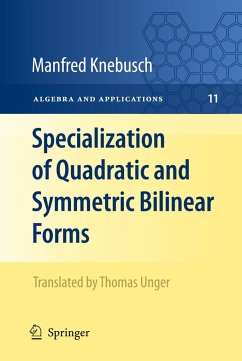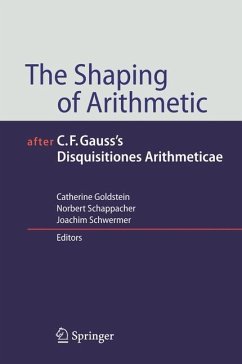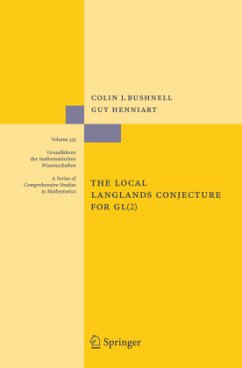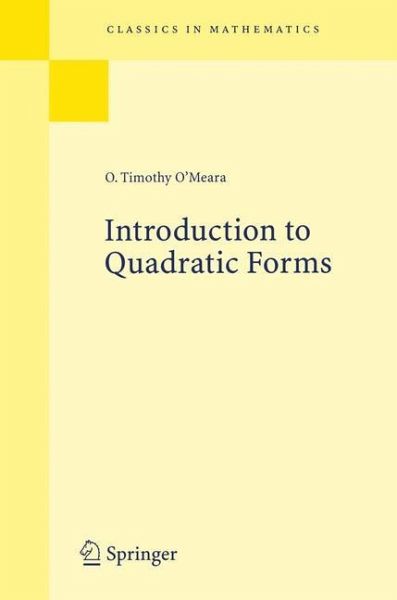
Introduction to Quadratic Forms
Versandkostenfrei!
Versandfertig in 1-2 Wochen
43,99 €
inkl. MwSt.

PAYBACK Punkte
22 °P sammeln!
From the reviews: "O'Meara treats his subject from this point of view (of the interaction with algebraic groups). He does not attempt an encyclopedic coverage ...nor does he strive to take the reader to the frontiers of knowledge... . Instead he has given a clear account from first principles and his book is a useful introduction to the modern viewpoint and literature. In fact it presupposes only undergraduate algebra (up to Galois theory inclusive)... The book is lucidly written and can be warmly recommended.J.W.S. Cassels, The Mathematical Gazette, 1965"Anyone who has heard O'Meara lecture w...
From the reviews: "O'Meara treats his subject from this point of view (of the interaction with algebraic groups). He does not attempt an encyclopedic coverage ...nor does he strive to take the reader to the frontiers of knowledge... . Instead he has given a clear account from first principles and his book is a useful introduction to the modern viewpoint and literature. In fact it presupposes only undergraduate algebra (up to Galois theory inclusive)... The book is lucidly written and can be warmly recommended.
J.W.S. Cassels, The Mathematical Gazette, 1965
"Anyone who has heard O'Meara lecture will recognize in every page of this book the crispness and lucidity of the author's style;... The organization and selection of material is superb... deserves high praise as an excellent example of that too-rare type of mathematical exposition combining conciseness with clarity...
R. Jacobowitz, Bulletin of the AMS, 1965
J.W.S. Cassels, The Mathematical Gazette, 1965
"Anyone who has heard O'Meara lecture will recognize in every page of this book the crispness and lucidity of the author's style;... The organization and selection of material is superb... deserves high praise as an excellent example of that too-rare type of mathematical exposition combining conciseness with clarity...
R. Jacobowitz, Bulletin of the AMS, 1965





